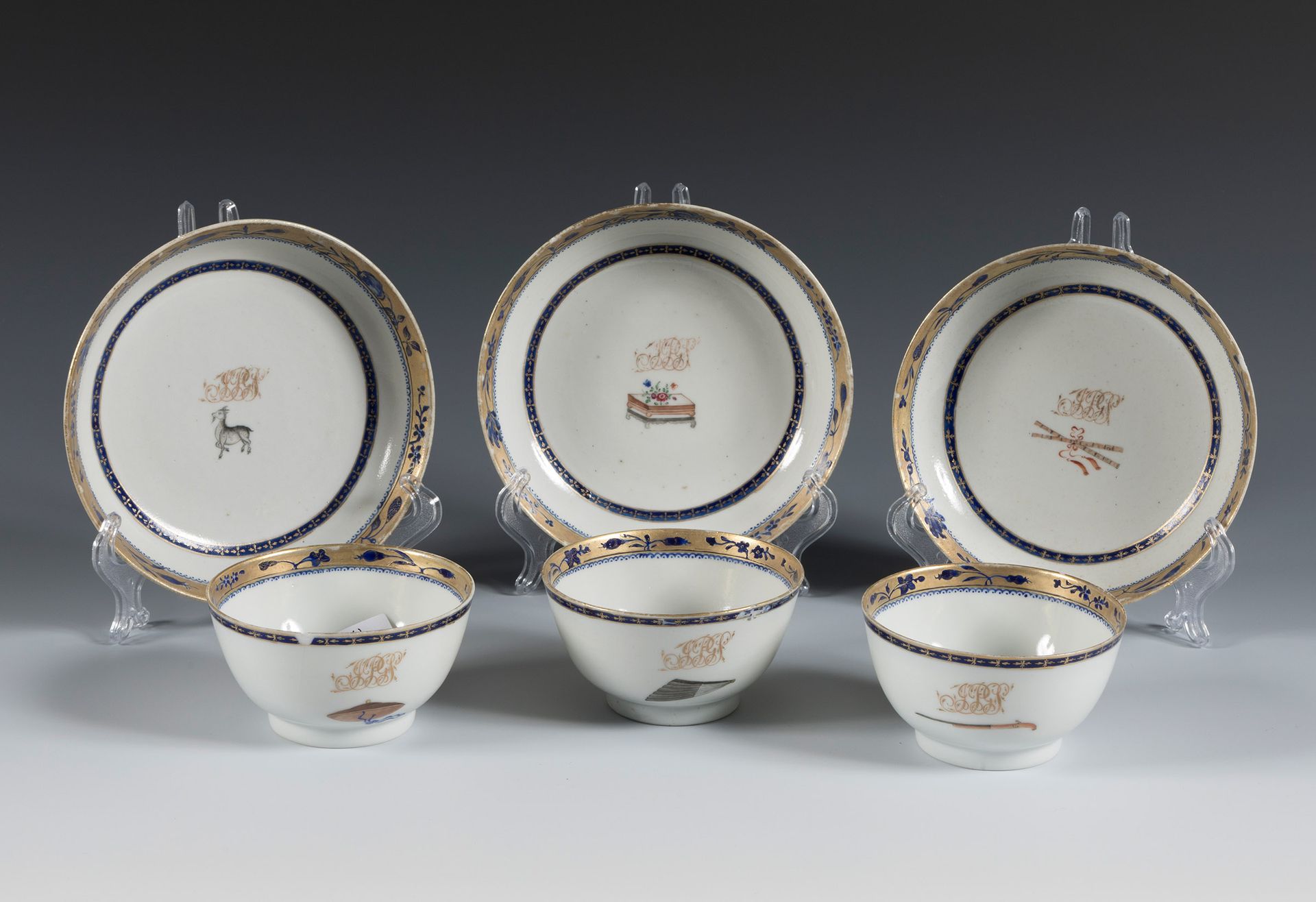Description
Tea set. East India Company, 18th century. Enamelled porcelain. Comprising three cups and three saucers. With European initials "J.P.G.S". It shows wear and chipping on the upper edges of the cups. Measurements: 5 x 9 cm (cup); 3 x 13 cm (plate). Objects of Chinese provenance, such as porcelain, have been known in the West since ancient times. As some of the Pradro Museum's catalogues state: "Chinese manufacturers soon realised that Europeans were not connoisseurs of porcelain, and made export porcelain, vulgar, even flawed, but which in the eyes of Westerners are true works of art. Once the trade was regularly organised, the India Companies supplied Chinese artists with European models, both for forms and decoration. Throughout the 18th century, the blue and white series persisted, but of inferior quality, which was then called Nanjing porcelain, and especially the famille rose type".
83
Tea set. East India Company, 18th century. Enamelled porcelain. Comprising three cups and three saucers. With European initials "J.P.G.S". It shows wear and chipping on the upper edges of the cups. Measurements: 5 x 9 cm (cup); 3 x 13 cm (plate). Objects of Chinese provenance, such as porcelain, have been known in the West since ancient times. As some of the Pradro Museum's catalogues state: "Chinese manufacturers soon realised that Europeans were not connoisseurs of porcelain, and made export porcelain, vulgar, even flawed, but which in the eyes of Westerners are true works of art. Once the trade was regularly organised, the India Companies supplied Chinese artists with European models, both for forms and decoration. Throughout the 18th century, the blue and white series persisted, but of inferior quality, which was then called Nanjing porcelain, and especially the famille rose type".
